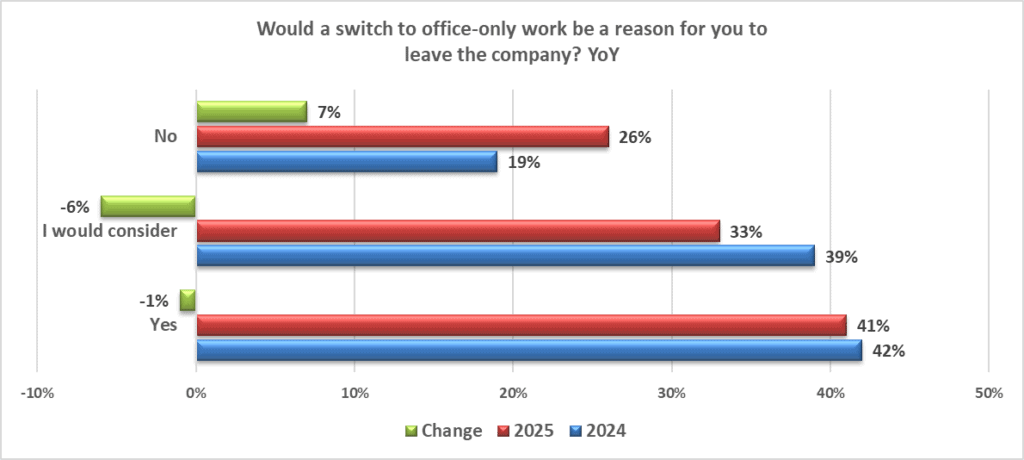When we talk about a work model today, most people in the tech industry instantly know what that means. The term became part of everyday language after 2020, when the pandemic forced companies around the world to rethink traditional work structures. Practically overnight, teams had to adapt to remote work, virtual collaboration, and new ways of measuring performance. This global shift opened a conversation that continues today — where and how do people actually work: from the office, from home, or in a hybrid setup?
Work models remained most relevant in tech industry and related professions, as this sector was the first to show how flexibility can actually boost productivity. People who work with a laptop and an internet connection — the so-called “knowledge workers” — became the symbol of a new era, one where performance is measured by results, not by hours spent in the office.
What Work Looks Like in Serbia in 2025
On the Serbian tech market in October 2025, the most common work model is still hybrid:
- Hybrid work by personal choice – 34%
- Structured hybrid work – 21%
- Fully remote (global) – 17%
- Remote from Serbia – 10%
- Office-only work – 6%
Within the hybrid model, working three days from the office remains the most common setup.
So, although return-to-office discussions are getting louder, most employees still enjoy at least some level of flexibility.
What Would Happen If Everyone Had to Return to the Office?
When asked “Would a switch to office-only work be a reason for you to leave the company?” — as many as 41% of respondents said yes.
The highest turnover risk is among those currently working fully remotely, especially those with global flexibility.
Hybrid employees show a more moderate stance, while those working remotely within Serbia fall somewhere in between. In other words — the more freedom people have, the higher the risk of losing them if that freedom is taken away.
The Return to Offices: Between Interaction and Control
More and more companies are announcing partial or full returns to the office, often citing better collaboration, focus, and creative energy as their reasons. On the other hand, there’s also a social dimension — the idea that it’s unfair for service workers to commute daily while knowledge workers remain exempt.
In practice, however, market data shows clearly how employees think.

Compared to last year, there’s been a decrease in the number of people who say they would definitely quit if required to return to the office.
We can interpret this in several ways: perhaps due to fewer job opportunities and a general sense of uncertainty, or perhaps because some people genuinely recognise the benefits of office work — social connection, focus, and clearer boundaries between work and personal life.
But the essence remains the same: how people work matters less than how much they are trusted.
It’s not that people want to work less — they just want more trust.
Flexibility is not a whim; it’s a message: “Trust me to do my part, no matter where I work from.”
And that trust is what today separates the companies that keep their people from those that lose them.
Although employee attitudes are gradually changing and more people say they would accept returning to the office, the need for flexibility remains a key condition for satisfaction and retention.
All data presented in this blog comes from the Jaka Lounge IT Market Research, October 2025.



